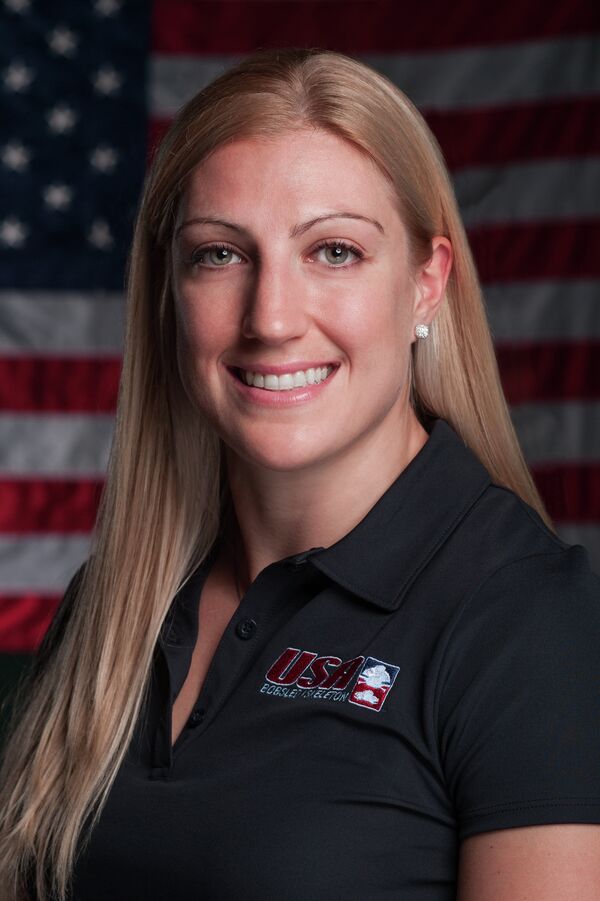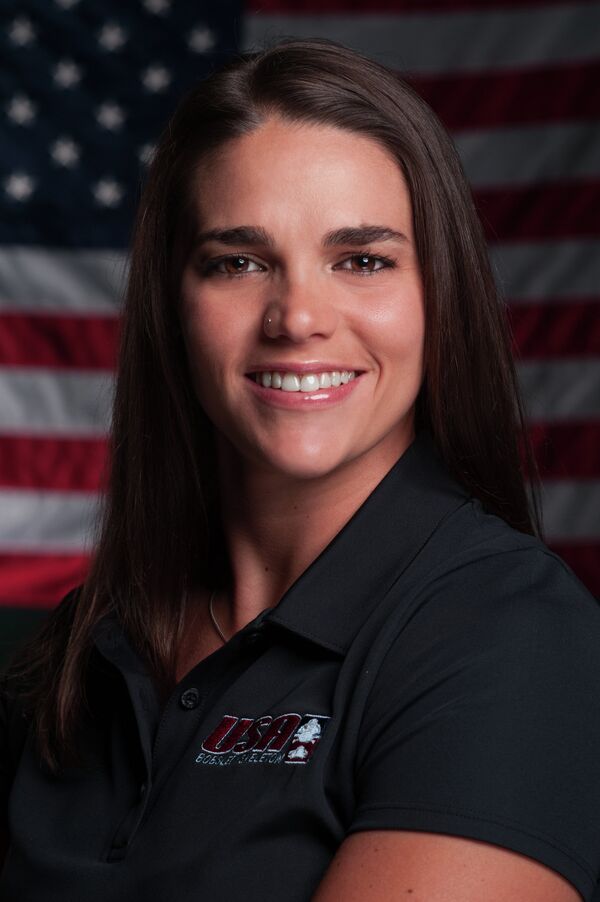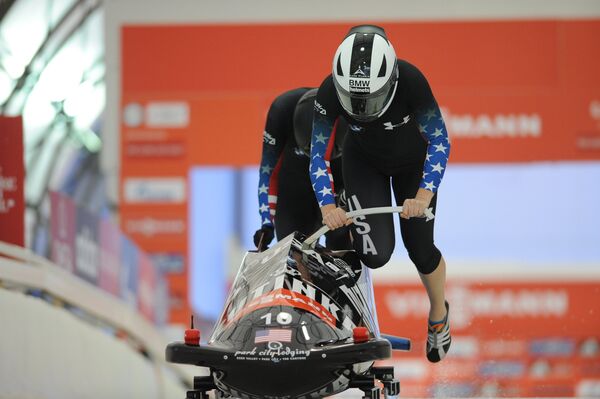WASHINGTON, December 4 (by Carl Schreck for RIA Novosti) – If US Olympic bobsled hopeful Jamie Greubel makes it to the Winter Olympics, she may have Russian vodka to thank for it.
Like many of her fellow US athletes, Greubel relies on private sponsorship to help stave off financial ruin as she strives to make the national team at the Games in the southern Russian resort town of Sochi in February.
And among this year’s sponsors of the US bobsled team is the Putinka vodka brand, whose logo made an inaugural run on a sled piloted by Greubel in Calgary, Canada, over the weekend.
“We’re excited to have great sponsors for this season, because it’s really expensive to get to Russia two times,” Greubel told RIA Novosti, referring to the team’s training trip to Sochi last month and the upcoming Winter Games.
Unlike most countries, the United States does not provide federal subsidies for its Olympic athletes, leaving them to rely on sponsors, grassroots donations, family support, an array of odd jobs and, more recently, online crowd-funding to finance their Olympic dreams.
Greubel, 30, said that even though her travel, expenses and health care are covered thanks to sponsorship money earmarked for members of the US team during an Olympic year, remaining financially solvent is a constant struggle.
“We’re kind of forced to work night jobs and waitressing jobs,” she said. “After you train hard all day, what would be ideal would be to recover and to stay off your feet. But there we are, training all day and then running off to work an eight-hour shift to make money and then getting up the next day and doing it all again.”

Greubel estimates her total training-related costs this year at around $17,000, and that’s on top of the student loans she has to pay off. To fund her training last season, she racked up $5,000 in credit card debt that she was only able to pay off earlier this year.
Nonetheless, she decided not to work nights this year to focus exclusively on making the US women’s team for Sochi, which is set to be selected in mid-January.
It is a decision she felt was necessary given the competition for a spot on the US team and what she sees as the advantage enjoyed by foreign athletes subsidized by their governments.
“This is my shot at making the Olympic team, and I need to figure it out financially, but put my training first,” Greubel told RIA Novosti. “If I don’t, I can’t be certain that I’m going to be 100 percent at the Olympics like everybody else.” Greubel’s teammate and sometime racing partner, Sochi hopeful Emily Azevedo, launched her bobsled career seven years ago and said that she was already feeling the financial pressure after just one season.

“I had 12 cents left in my bank account, and my family had helped with a majority of my bills that season,” Azevedo told RIA Novosti.
Even top US athletes in higher-profile Olympic sports, such as gymnastics and swimming, sometimes reach the pinnacle of their sports only thanks to enormous sacrifices by their families.
Last year, gold medal-winning gymnast Gabby Douglas’ mother declared bankruptcy to escape money woes. Meanwhile, the family of swimming champion Ryan Lochte faced possible foreclosure on their home due to their alleged failure to make mortgage payments.
Both athletes have gone on to secure endorsement deals worth millions of dollars, but there are many more Olympic hopefuls and competitors that never see that kind of payday.
Around half of US track-and-field athletes who rank in the top 10 in their events earn less than $15,000 annually from sponsorships, grants, prize money and other sources associated with their sporting careers, according to a study last year by the Track and Field Athletes Association, a US-based nonprofit organization.
Of the US national ski team competing in Sochi, most of the top skiers are fully funded by their federation through a mix of sponsorship, member fees and financing from the US Olympic Committee.
But even that can be difficult, said Chip White, the women’s alpine speed coach for the US Ski Team.
“We try to make sure that the very top tier get all of that covered,” White told RIA Novosti. “But it’s also a challenge, even at the top level, trying to make sure that everyone gets what they need.”
Azevedo and Greubel say they are grateful for the support from sponsors of the US Bobsled and Skeleton Federation, who in addition to the Russian owners of the Putinka vodka brand – the Eastern European Distribution Company – include German carmaker BMW and US real estate giant Century 21.
But unexpected costs are constantly creeping up that the athletes must shoulder themselves.
After flying from Moscow to Los Angeles last month, bags carrying Greubel’s clothing and equipment went missing, even though she saw the bags in Los Angeles while connecting on a flight to Utah.
“It’s frustrating because I don’t have a lot of money saved up,” she said.

